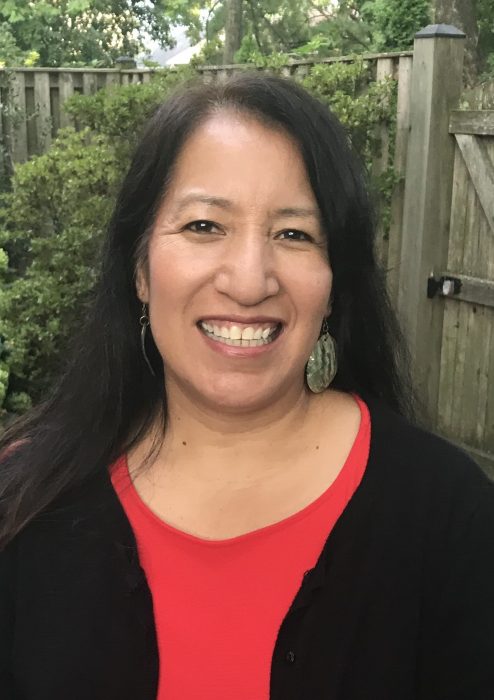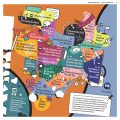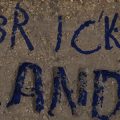Dorothy Lippert named Repatriation Program Manager at NMNH
With more than 20 years’ experience at the Smithsonian, Lippert is nationally recognized for her contributions to archaeology and repatriation.

Dorothy Lippert
The Smithsonian’s National Museum of Natural History has announced that archaeologist Dorothy Lippert is the museum’s new Repatriation Program Manager. A leading figure in the field of Indigenous archaeology, Lippert is the first woman and first Native American to hold this position.
“We are proud to announce Dorothy Lippert’s appointment to lead the museum’s repatriation program,” said Kirk Johnson, the Sant Director for the National Museum of Natural History. “Dorothy’s range of experience and prominent standing in her field make her a perfect fit for this vital position.”
As a citizen of the Choctaw Nation of Oklahoma, Lippert has long been interested in topics revolving around archaeological ethics and repatriation. For more than 20 years, she was a tribal liaison in the museum’s repatriation office, working with tribes from the Southeast and Southwest United States and Alaska.
“As a tribal citizen, repatriation work is challenging on a personal level, but it is also rewarding to use my archaeological expertise in service to Indigenous communities,” Lippert said. “This is hard work, but I am comforted by the thought of the people we’ve been able to help return home.”
In addition to her duties at the Smithsonian, Lippert has participated in many of anthropology’s most esteemed organizations. These include membership on the boards of directors for the Society for American Archaeology and the World Archaeological Congress as well as service on numerous committees for both organizations. In 2011, she was appointed by President Barack Obama to the Advisory Council on Historic Preservation, serving two terms as an expert member and chair of the Archaeological Subcommittee and vice chair of the Committee on Native American Affairs. Lippert is also a prolific scholar exploring subjects ranging from the archaeology of the Southeastern U.S. to the development of Indigenous archaeology worldwide. She has published articles in journals such as American Antiquity, American Indian Quarterly, The American Journal of Biological Anthropology, The International Journal of Cultural Property and Archaeologies as well as chapters in numerous books. Universities and museums worldwide have invited Lippert to serve as a lecturer on repatriation, archaeological ethics and other topics. She will present on the Smithsonian’s ethical returns program as a featured speaker at the Association on American Indian Affairs’ annual repatriation conference in early November.
Established in 1991, the museum’s Repatriation Office has pioneered a collaborative process in which Smithsonian staff work with Native American, Alaska Native and Native Hawaiian tribal representatives to determine the disposition of culturally affiliated remains and objects at the museum. Lippert now oversees a team of several tribal liaisons and other researchers that help the field, review and fulfill repatriation requests for human remains and sacred objects in the museum’s collection.
“Repatriation is a powerful way for the museum to respect tribal sovereignty and the rights of Indigenous people,” Lippert said. “In taking on this role as repatriation program manager, I look forward to transforming our program so that we expediently fulfill our responsibilities while maintaining and creating collaborative relationships with the tribes we serve. It was a long road to get to where I am today, but this is what Native people do. We endure. We care for our communities. And we always keep moving forward.”
Posted: 13 November 2023







